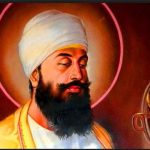Ramadan 2019 – Day1: What is Ramzan ( What is Ramadaan ) and why do Muslims Fast?
Many Muslims around the world began fasting Monday to mark the start of the holy month of Ramadan and in India, Tuesday marked the first day of the beginning of the Holy month. But what does this Holy month mean? Most important every year, Muslims around the world fast during daylight hours, but what is it really about? M and how do they keep it? Let us find some answers to these questions.
The Holy Month
Ramadan is the ninth month in the Muslim lunar calendar. Healthy adult Muslims fast in Ramadan from dawn until dusk. This includes abstaining from drinking, eating, immoral acts and anger. Other acts of worship such as prayer, reading the Quran and charity are also encouraged during the holy month. Muslims also believe the Quran was revealed in Ramadan.
During the holy month, Muslims wake up early to eat a pre-dawn meal called suhoor, and they break their fast with a meal referred to as iftar. This means waking up before dawn to eat, hydrate and pray. Once the sun rises, Muslims abstain from food and drink, including water, until sunset. They repeat the gruelling routine every day for a month.
It’s also a month of gratitude. By abstaining from food and water during the day, the faithful are reminded of those less fortunate. Each night during Ramadan, mosques and aid organizations set up tents and tables to serve free evening meals for the poor.
How long is Holy month
Lunar months last between 29 to 30 days depending on when the new moon is sighted. If the moon is not seen on the night of the 29th day, then Ramadan lasts for the full 30 days. The Eid al-Fitr celebration marks the end of the month when Muslims celebrate a successful Ramadan of fasting and worship
This year, Monday, June 3, will be the 29th day of Ramadan for most Muslim nations in the Middle East. These countries will be on the lookout for the Eid moon that evening. If it is sighted, the first day of Eid al-Fitr will be observed on Tuesday, June 4. Otherwise, Ramadan fasting will carry on for 30 days and Eid al-Fitr will be celebrated on Wednesday, June 5.

Why do Muslims fast during Ramadan?
Fasting is one of the five pillars of Islam. There is also a verse in the Quran that prescribes fasting for all Muslims who are mature and healthy enough to do so for the full day. So Muslims fast as an act of worship, a chance to get closer to God, and a way to become more compassionate to those in need. Fasting is also seen as a way to learn patience and break bad habits.
Fasting is meant to bring worshippers closer to God through steady remembrance, reflection and sacrifice. Daily fasting, combined with five daily prayers and extended evening prayers, challenges worshippers to focus on their actions, deeds and thoughts, rather than on material desires and instant gratification. Fasting is a requirement in Islam — a reset for the mind, body and soul. Muslims are expected to show self-control and deeper spirituality during Ramadan.
How do Muslims fast during Ramadaan
Muslims must abstain from all eating, drinking or smoking from dawn to dusk each day for the entire lunar month, around 30 days. A single sip of water or coffee, or a puff of a cigarette, is enough to invalidate the fast. Sexual intercourse is also forbidden during the daylong fast, and Muslims are encouraged to avoid gossip, arguments and idle time.
To prepare for the fast, Muslims wake for a pre-dawn meal called “suhoor.” Often the small meal will include vegetables and fruits, tea, yoghurt, dates and power foods such as beans and lentils. In many cities in the Muslim world, volunteers wake the faithful for suhoor by marching through the streets chanting and beating drums.

How do Muslims break their fast
Muslims traditionally break their fast as the Prophet Muhammad did some 1,400 years ago, with a sip of water and some dates at sunset. After sunset prayers, a large feast known as “iftar” is shared with family and friends. Iftar is a social event as much as it is a gastronomical adventure. Across the Arab world, apricot juice is an iftar staple. In South Asia and Turkey, yoghurt-based drinks are popular.
It is common for mosques to host large iftars, especially for the poor and needy. Nightly prayers called Tarawih are also held in mosques after iftar.
Different cultures have different traditions during Ramadan, whether it is a special food they must cook, or eating iftar with the extended family. Islamic tenets such as generosity inspired most of these traditions, including sharing food and inviting guests over for iftar.
Who can be exempted from fasting during Ramadaan
Children, the elderly and the ill are exempt, as well as women who are pregnant, nursing or menstruating. Travellers, including athletes taking part in tournaments away from home, are also exempt from fasting. Muslims living in countries with excessively long daylight hours are advised by religious scholars to adhere to the fasting times of the nearest Muslim-majority country.









